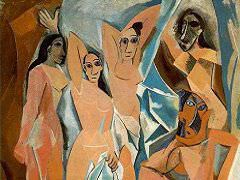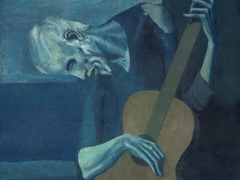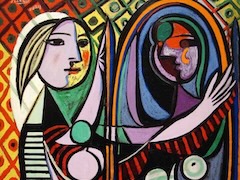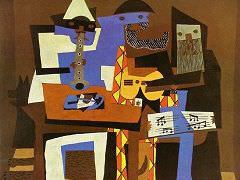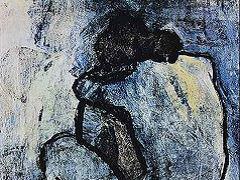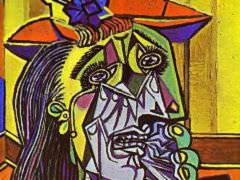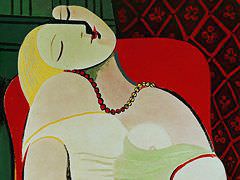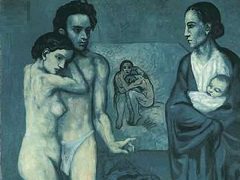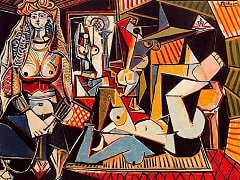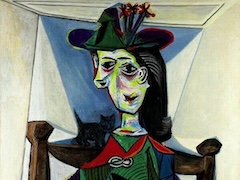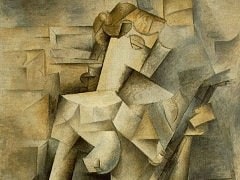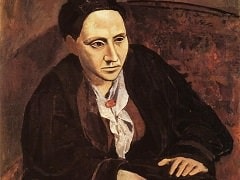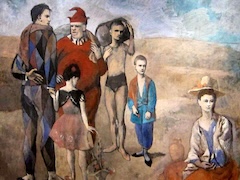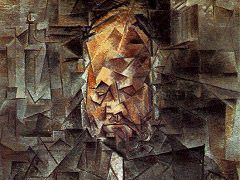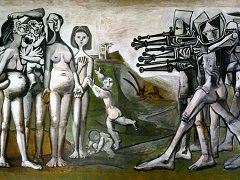Girl Before A Mirror, 1932 by Pablo Picasso
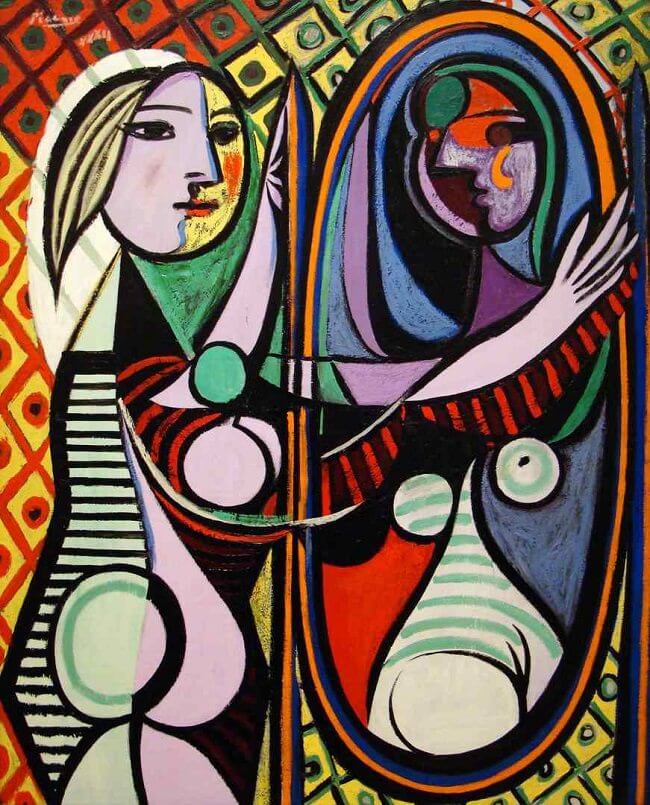
Girl Before Mirror was painted in March 1932. It was produced in the style Picasso was using at the time and evoked an image of Vanity such as had been utilized in art in earlier eras, though Picasso shifts the emphasis and creates a very different view of the image. The work is considered in terms of the erotic in Picasso's art, and critics in different periods have offered their assessments of the work to show a wide range of reactions.
The young girl was named Marie Therese Walter and was painted multiple times during the 1930's by Picasso.
Girl Before a Mirror was painted during Picasso's cubism period. Picasso was an artist that was very bold with his artwork. Even with backgrounds that are normally placed to be a backdrop and mainly there to assist the main subject. He includes it within the painting to make it just as intense as the main focal point of the image.
Picasso was part of a movement that would become known as Modernism, a name which included a number of different artistic styles and aesthetic responses. Modernism is a term applied retroactively to certain literary and artistic trends at the beginning of the twentieth century. The disjointed time sense, the flight from the conventions of realism, and the adoption of complex new forms and styles in the modernist period were undertaken to provide new meaning, to illuminate the world in a different way, and to show different relationships within the observed world. Modernism rejected traditions that existed in the nineteenth century and sought to stretch the boundaries.
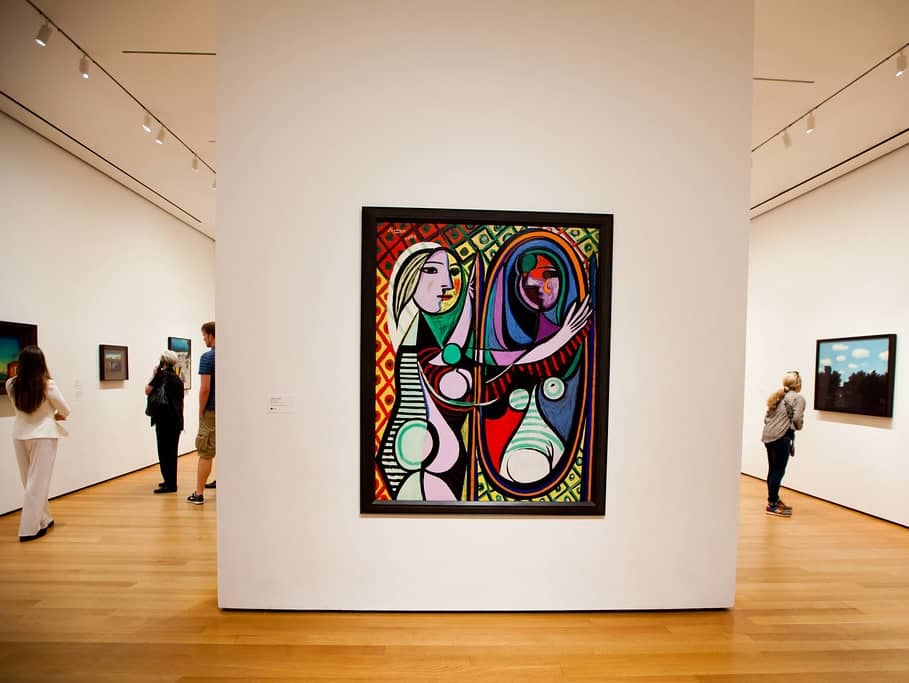
When you look closely at the image, you can interpret many different symbols within different parts of the painting. The woman's face for one; is painted with a side profile and a full-frontal image. One side shows the day time where she seems more like a woman, dolled up with her make up done. The other side with the rough charcoal texture portrays her at night. When she takes off the mask of makeup, and is more vulnerable as a young lady. One way of interpreting the painting is when the woman looks at herself in the mirror; she is seeing herself as an old woman. From the green discoloration on her forehead, darkening of her facial features to the lines that show that her young body has been distorted, and gravity has taken its rightful place. Another way of viewing the painting is that she is self-conscious, and she sees all the flaws in herself that the world doesn't see.


